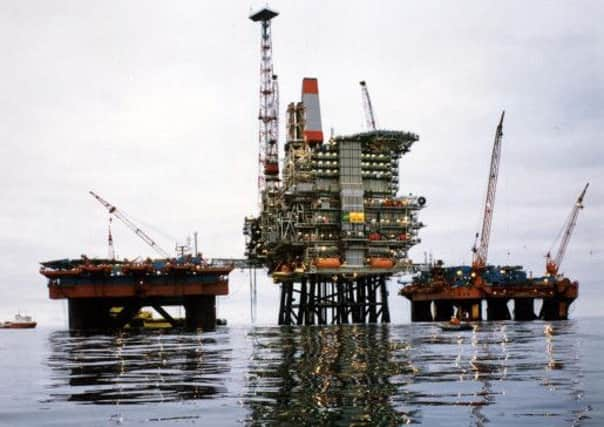North Sea drilling falls as Premier Oil plans cuts


The news came amid further evidence of the impact of the falling oil price with a major explorer saying it was slashing spending on development.
Deloitte’s report said those involved in the sector need to adapt to a lower oil price environment and reduce costs in order to get through “this period of transition”.
CONNECT WITH THE SCOTSMAN
Advertisement
Hide AdAdvertisement
Hide Ad• Subscribe to our daily newsletter (requires registration) and get the latest news, sport and business headlines delivered to your inbox every morning
It noted that the fall in the number of wells being drilled to 40 from 50 in 2013 also highlighted the need for “further clarity from government over the fiscal incentives that will be made available to support exploration and appraisal activity”.
Premier Oil, which is a significant investor in the North Sea, yesterday said it planned to cut spending on new developments globally in the next financial year by 40 per cent.
That announcement came as First Minister Nicola Sturgeon announced an energy jobs taskforce was being set up to help address the risk to jobs in the North Sea from price falls and what she called UK government “mismanagement” of the tax regime for oil and gas.
Continuing pressure on oil prices and a move by the World Bank to cut its global growth forecast for this year also saw stock markets hit by heavy losses.
As well as the fall in new wells being drilled, the Deloitte report found there was a decline in the number of field start-ups in 2014, falling to six from 13 in 2013.
Sir Ian Wood’s UKCS Maximising Recovery Review, it said, had prompted changes including adjustments to the tax regime and the establishment of a new industry regulator, the Oil and Gas Authority (OGA), but more needed to be done to attract investment.
Graham Sadler, managing director of Deloitte’s Petroleum Services Group, said: “We have started to see some positive steps taken in that direction, with the recommendations made in the Wood Review and tax changes announced in the Autumn Statement among them.
Advertisement
Hide AdAdvertisement
Hide Ad“We continue to see steady but low levels of drilling and hope this will increase. However, that will require industry dialogue with, and strong guidance from, the OGA. It will also need further clarity from government over the fiscal incentives that will be made available to support exploration and appraisal activity.
“To sustain its future, the North Sea’s stakeholders will need to adapt to a lower oil price environment and reduce costs in order to get through this period of transition.”
Derek Henderson, Deloitte’s Aberdeen office senior partner, said the fall in oil price to below $50 a barrel could lead to a wave of consolidation in the sector.
“It is likely that if the oil price remains low assets will become more affordable to some of the region’s more cash-rich players who may be looking to invest in the UK basin,” he said.
“As a result, we could see more transactions in 2015 as some businesses look to divest and focus on other areas. This could also bring about further consolidation among some of the players in the market. There are definitely firms on the lookout for assets and deals will be done if the price is right.”
Premier Oil, which has interests in nine producing fields in the UK, said although 2014 revenues were 6 per cent up on 2013, profits will be hit by an impairment charge estimated at $300m (£200m).
Despite announcing a broad programme of cost reductions and the “postponement of discretionary spend”, chief executive Tony Durrant said: “Premier is in a strong position to weather a period of oil price weakness due to its long-term cash flow generation”.
SUBSCRIBE TO THE SCOTSMAN’S BUSINESS BRIEFING